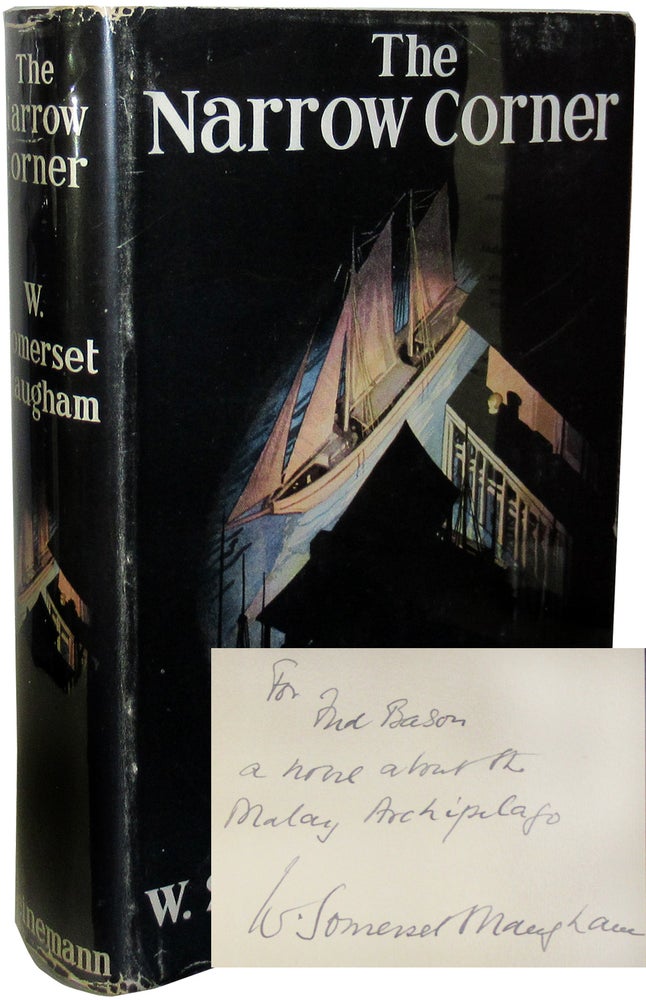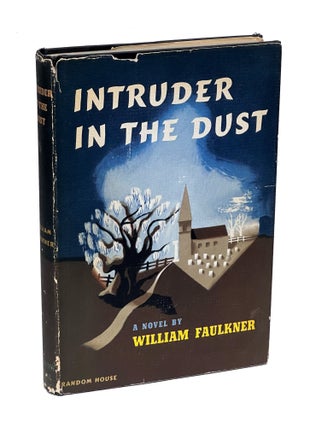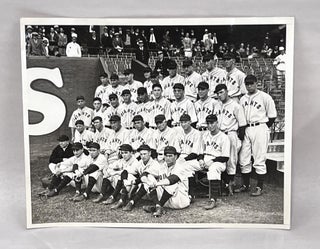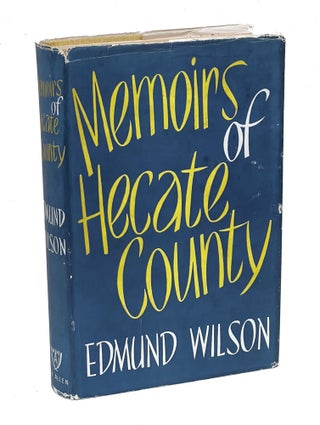
The Narrow Corner
Price: $1,750.00
Hard Cover. London: William Heinemann, 1932. First Edition. Near Fine / Dust Jacket Included.
First edition, first printing. One of 10,000 copies printed. Inscribed by the author to first free leaf: "For / Fred Bason / a novel about the / Malay Archipelago / W. Somerset Maugham". Publisher's smooth blue cloth, lettered in gilt to front board and spine and stamped in black with the author's symbol and publisher's name; in the original black pictorial dust jacket with an illustration of a ship passing by dark houses. A near fine copy with a touch of toning to spine and rubbing to spine ends, a few faint white spots to rear board; in a near fine dust jacket, unclipped with a few scratches and light wear to extremities, shallow chips to spine ends. Overall, a beautiful copy. Stott A44a. Fred Bason (1907-1973), now best known as the author of A Bibliography of the Writings of William Somerset Maugham (1931), was a close friend and admirer of the noted English author. In a letter that also expressed Bason's thoughts - all negative - on one of Maugham's plays, the young Bason extended an invitation to the author to join him for tea, and so began their decade-long friendship. A secondhand bookseller and small-time writer himself, Bason saw Maugham as a mentor, and with his guidance published a few pieces in literary magazines. Early in their friendship, Maugham inscribed several books to Bason, given to him along with advice to sell them when the market was right. Finding this a profitable endeavor, Bason continued to request signed books from his once-mentor and friend, eventually leading to the end of their relationship. The Narrow Corner is a novel about three men who find themselves navigating the waters of the Malay Archipelago together. One, the captain of the boat staying out at sea to avoid his wife, and the others, an opium-smoking doctor making his way back to China, and a young, mysterious Australian man wanted for a murder. Largely an exploration of the characters and their backstories, the book is written in Maugham's characteristic vivid, straightforward prose. Notably, in 1933 the book was adapted for a film of the same name, directed by Alfred E. Green. Item #WSM022




